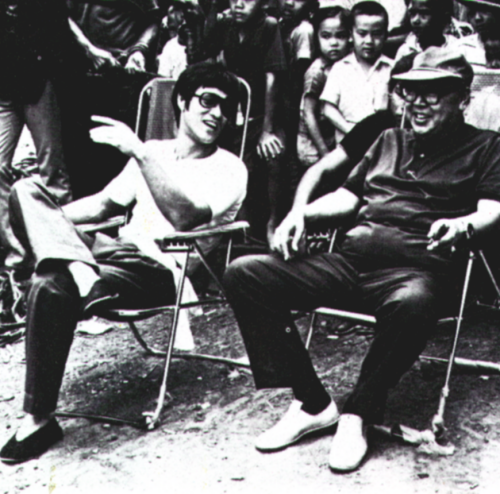
Ever thought that half the cast in a Kung Fu film were talking backwards? I certainly wouldn’t be surprised if you did because almost all of the films made in Hong Kong are dubbed; in other words the voices are added after the film is made.
That makes some kind of sense because I don’t expect you’d learn very much from the original Chinese version – much better to hear it in English. But the fact is that there is no original Chinese version.
One reason for this is that there are no lavish sound studios in Hong Kong! ‘The cheapest is best’ seems to be the guideline that most Chinese producers adopt.
Often, two, three or even more films are being shot on one film set and if the voices were live you might’ve well ended up with great chunks of ‘Seven Golden Vampires’ dialogue in the middle of the quiet bits of ‘The One-Armed Boxer.’
Another reason is that Hong Kong is a noisy place itself. It’s a very small island with a very large population and when shooting outside with a great gaggle of sightseers in attendance, keeping everyone quiet is virtually impossible.
Even if all the unruly observers were silenced, the sound of a Boeing 707 coming in to land would seem a bit out of place in the middle of some 14th century epic.
Because the sound is recorded after the film is made it allows the director and actors considerable freedom during the actual shooting. They can concentrate more on the spectacular martial arts displays and spend less time worrying about whether an actor said his lines correctly – or even at all!
The director has some general idea of the story of the film and perhaps he has some of the most important pieces of the script written down, but that’s about as far as it goes.
So how does the sound get on to the film? That’s where the dubbers come in.
Dubbers may be skilled professional actors, as is the case with some of the major studios, or they may just happen to be anyone who’s passing.
The dubbers watch small loops of film which are shown on a machine, they speak suitable lines and thus become the actor’s ‘voices’. These loops aren`t generally shown in sequence and a dubber may spend hours working on a great number of jumbled loops, finish his job and go home quite happily without the first idea of what the film is about.
Sometimes the audience find themselves in a similar position!
The film may be dubbed in a number of different languages and then the sound effects and music are added. So even the sickening crash when someone hurtles head first through a temple wall might be nothing more violent than a dubber dropping a teacup!
Although some important film producers, notably Shaw Brothers, take great care adding on the sound; nobody is proof against the dubbing squad!
